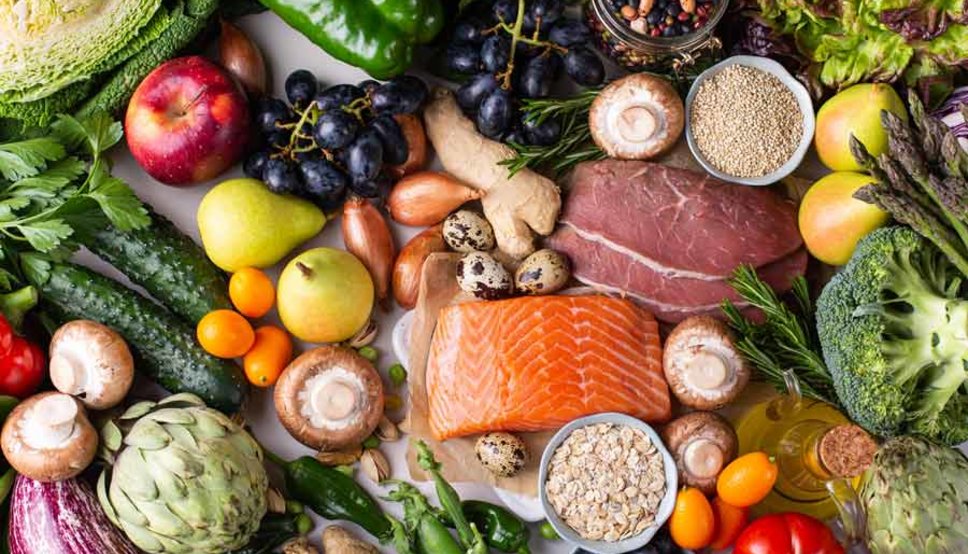Mediterranean Diet Best for Weight Loss, Heart Health, and Longer Life

Whether you’re trying to lose weight, eat healthier, or just feel better, look no further than the Mediterranean diet. This eating plan is consistently ranked among the best diets, based on years of research.
What is the Mediterranean diet?
The Mediterranean diet is a way of eating inspired by the people living in the region that surrounds the Mediterranean Sea, including Greece, Italy, and Spain.
The word “diet,” however, can be intimidating to some, often associated with years of yo-yo dieting and the endless cycle of weight loss followed by weight gain. It may be more helpful to think of this as a lifestyle rather than a diet.
What foods are included in the Mediterranean diet?
The focus of a Mediterranean lifestyle includes plenty of plant-based foods such as fruits and vegetables, legumes, nuts, whole grains, and healthy fats, with the main dietary fat being extra virgin olive oil. The traditional diet has limited animal foods with small portions of healthy proteins such as chicken or fish and dairy that are not always consumed daily.
Unlike a “diet” it does not restrict you from eating any one food group. Instead, it allows you to enjoy an abundance of foods that not only taste good but are also good for you and will keep you feeling full longer.
Foods to enjoy regularly on Mediterranean diet:
- Fruits. Enjoy all the sweet deliciousness that nature has to offer with a wide variety of treats including apples, berries, bananas, melons, figs, and dates.
- Vegetables. From leafy greens such as spinach and kale, to carrots, broccoli, cucumbers, and potatoes, a mix of vegetables each day will provide vitamins and minerals your body needs while adding tasty yet wholesome foods to your diet.
- Beans and legumes. Think black beans, peas, lentils, and chickpeas that offer fiber while also keeping you full.
- Nuts and seeds. A few almonds or walnuts, or a handful of seeds such as pumpkin or sunflower, whether on a salad or enjoyed as a snack, add more variety to your daily intake.
- Extra virgin olive oil (EVOO) and olives. These “healthy fats” are a staple of the Mediterranean diet and are eaten daily. The health benefits of extra virgin olive oil start with two tablespoons a day. Be sure to use EVOO while preparing your veggies as the fat will help your body absorb important nutritional components found in some vegetables.
- Whole grains. This category includes such items as oats, brown rice, and bulgur, along with breads and pastas made from whole grains.
- Spices. Fresh herbs and spices are your friend and can change the way any food tastes with just a sprinkle. Use them freely in your cooking.
- Dairy products. Eggs, cheese, milk, and yogurt can be enjoyed as part of everyday meals.
- Seafood and fish. This region of the world is blessed with the bounty the sea provides including tuna, shrimp, salmon, and more. While the people of the Mediterranean region do not eat seafood daily, it can be a healthy option for a protein source a few days a week. However, those living on a Mediterranean diet get adequate protein from the starches and vegetables they enjoy regularly, which are healthier sources than protein from animals.
Foods to avoid on Mediterranean diet
One of the appealing factors of the Mediterranean diet is that it is focused on all the good things you can enjoy rather than what you should restrict from your daily meals. The foods to avoid on a Mediterranean diet include:
- processed foods, including potato chips and packaged cookies
- all types of beef and processed meats such as hot dogs
- added sugars, such as those in sugar-sweetened beverages or “low-fat” foods
You can learn more about all the foods you can enjoy and those to avoid on the Mediterranean diet here.
Benefits of the Mediterranean diet
Mary M. Flynn, PhD, RD, is a senior research scientist at The Miriam Hospital. She has been interested in the health benefits of the Mediterranean diet for more than 30 years. It is what led her to her research on extra virgin olive oil, which she calls a fascinating food.
Mary says, “When extra virgin olive oil is consumed daily, it affects your heart in several ways, and no other food has this range of benefits.” She explains that eating EVOO daily can:
- lower blood pressure
- improve blood lipids and lipoproteins
- lower blood glucose and insulin
- improve endothelial function
- improve cholesterol and increase blood levels of HDL and the health of HDL
- lower inflammation and oxidation
The Mediterranean diet is one of the best researched lifestyles, with study findings consistently indicating the following benefits:
Weight loss
Losing weight is never easy and there is no quick fix. The Mediterranean diet offers a way to shed some extra pounds, allowing you to eat a variety of tasty foods with few restrictions, though you will need to limit your total daily energy intake. But the foods itself do not feel like a typical diet, telling you to eat this and not that, which makes it easier to continue this eating plan long term. You can find more information on that here.
Increased heart health
Numerous clinical studies have found that the Mediterranean lifestyle can improve blood pressure and reduce the risk of heart attacks and strokes.
Improved brain health
Research studies have also shown that the Mediterranean diet promotes improved cognition and memory and may help to prevent cognitive decline and reduce the risk of Alzheimer’s disease.
Increased longevity and reduced risk of premature death
The lifespan of those living in this region of the world is typically higher, with Spain expected to increase its life expectancy to an average of 85.8 years by 2040, the highest in the world.
Reduced risk of type 2 diabetes
The foods that are included in the Mediterranean diet result in more stable blood sugar levels and a reduced risk of type 2 diabetes. Mary comments, “This is mainly due to the extra virgin olive oil which has been shown to lower blood glucose and insulin by improving insulin sensitivity, or how well your insulin works,” said Mary.
"Extra virgin olive oil is a critical component of the Mediterranean diet. It is important to make sure the intake of olive oil was assessed when reviewing studies to evaluate the diet’s health benefits,” Mary adds.
She notes that an older definition of the Mediterranean diet developed about 20 years ago compared monounsaturated fat content to saturated fat content. Studies using that definition typically do not show benefit, giving more credence to the importance of extra virgin olive oil in the Mediterranean diet.
Lifestyle and Mediterranean diet
In addition to their focus on eating natural, healthier food choices, other lifestyle habits of the Mediterranean people also contribute to a longer, healthier life, including:
- Cooking from scratch. Through home cooking you can control exactly what is included in your foods and avoid unhealthy fillers and added sugars that may be found in restaurant or processed foods. It also helps to better control your energy intake.
- Sharing meals with others. While eating the right foods is important, so too is staying connected with family and friends. Sharing a healthy meal is a great way to keep in touch.
- Physical activity. Walking is common in the Mediterranean region and contributes to the healthy lifestyle of its people. Be sure to add physical activity into your daily life.
The Mediterranean diet is a great way to live a healthier, longer life and is easy to follow. For more tips on eating for your health, visit the Nourish section of our Be Well health and wellness blog.
About the Author:
Brown University Health Blog Team
The Brown University Health Blog Team is working to provide you with timely and pertinent information that will help keep you and your family happy and healthy.
Find a Doctor

The right provider is in our network
Search more than 1,200 providers in our network.



